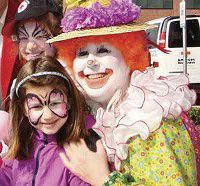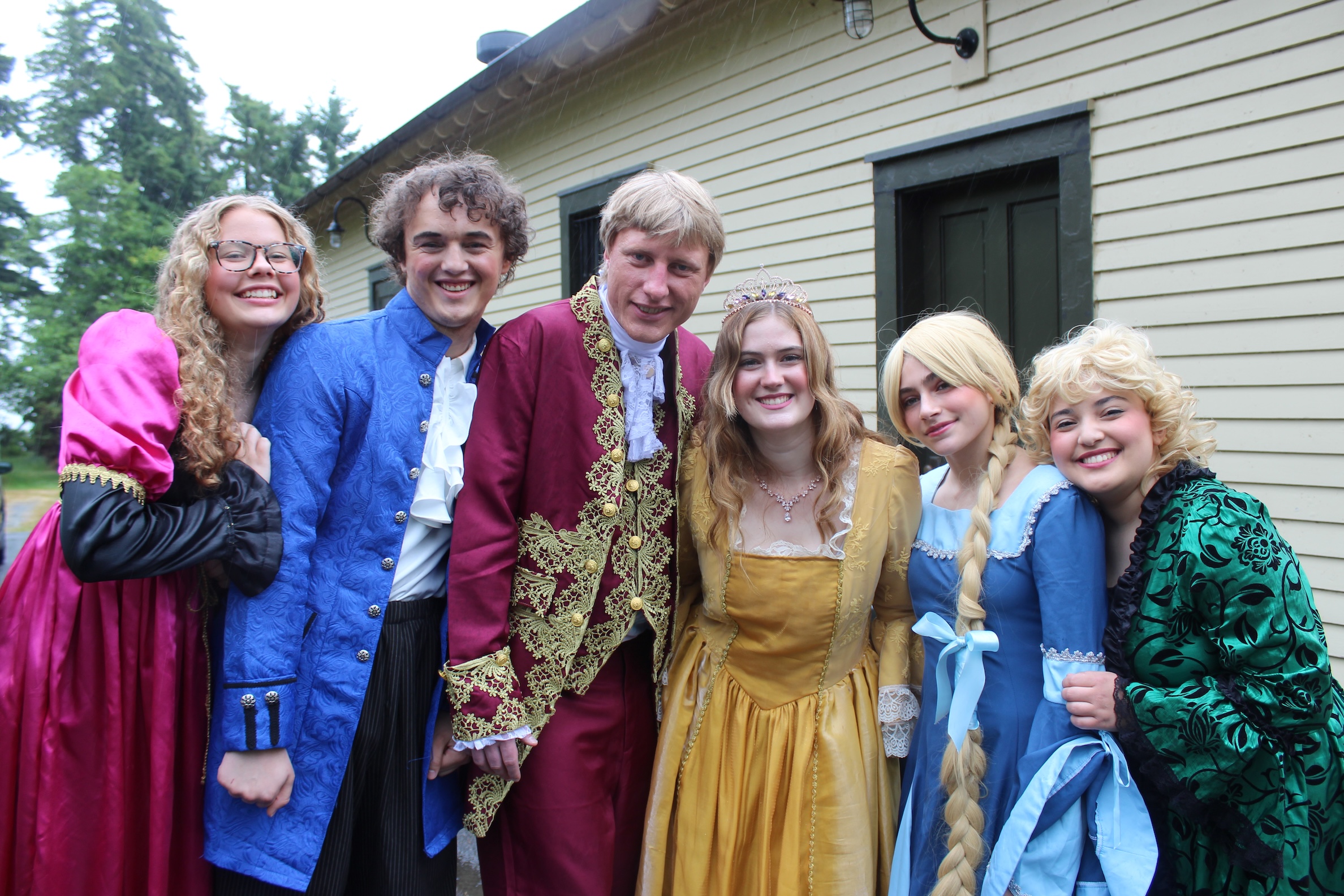THE ARTS: No tears for this clown – just silly, simple fun
Published 7:10 am Thursday, May 7, 2009

- Kathy Gordon, aka Jolly Molly the Clown, enjoys working with kids of all ages. Submitted photo.
I’d been afraid of clowns all of my life, but that ended when, as an adult, I met Jolly Molly the Clown. I was catering a birthday party for a bunch of 2-year-old kids and their parents, and the host of the party asked me to help find some local entertainment. Enter Jolly Molly, known in real life as Kathy Gordon.
Trending
The kids loved her. She was whimsical, sweet, tender, gentle, goofy and vivacious – everything I wasn’t sure a clown could be. Ever since my first encounter with clowns (as a child attending Barnum & Bailey’s circus events and with my little sister appearing on Seattle’s JP Patches show), I felt annoyed and even fearful of clowns. But I’d never met one up close.
I never saw Jolly Molly out of costume and makeup, but her love for people and gentle nature glowed through the big eyelashes, red frizzy hair and clown makeup. She is genuine and she loves what she does. “I have a humorous eye on the world,” says Gordon. “Sometimes I feel like I’m in a cartoon.”
The first time Gordon dressed as a clown was when she was in fifth grade. “I was always very outgoing,” she says. “I’ve been interested in theater and music (including opera) since I was very young.” At the age of just 18, she worked in opera and theater in San Francisco.
Trending
After moving to Oregon, as a single parent, she found a need to support her daughter, who was working alongside her friend Tonya Harding to become a world-class figure skater. “I just put together my love of kids, theater and music and came up with Jolly Molly,” she says.
How did she learn the art of being a clown? “I just started doing it,” she says, “I then met an older clown named Smiling Eli (Harold Whitney) who is a member of the Rose City Clowns. He shared information on clowning opportunities in Portland and taught me a few new tricks.”
Regardless of what people think, she says, “Clowning is a business and some are very cutthroat. Lots of people have a clown suit and think that makes them a clown, but there is much more to it.”
“I predate clown school,” says Gordon. According to Gordon, after she had already become a clown, Ringling Brothers started a school for clowns. Many graduates went on to perform with the company, often putting on as many as 14 shows a day, six days a week … Clowning is serious business; there are conventions held locally and nationally. In the Pacific Northwest, we have the Rose City Clowns and the Astoria Clowns, among others.
What are her favorite parts of clowning?
“In the beginning, I thought that I had to control everything,” she admits. “Now I just lay back and make sure we’re all going to have fun.” Some of the children’s favorites include “silly, simple things – like when I fall down and make fun of myself. They also love balloon animals – and so do people at the senior centers.” Gordon says she loves all age groups. “Four-year olds are darling,” she says. “Five-year-olds are full of energy. At 6 years of age they can participate, and by 7 years they can dance and do all the fun stuff.”
Over the years, Gordon has seen all sorts of things through the eyes of a clown. One part she enjoys the most is cheering up children in need. She volunteers for “Buddy Walks” for children with Down syndrome and visits children’s hospitals. She recalls one time at Doernbecher Hospital when a little girl was dying of cancer. “She was so sick,” recalls Gordon, “she could barely do anything – but when I showed in my clown outfit, she gave me a little smile.”
One of the most memorable moments Gordon had as a clown was meeting Supreme Court Justice Sandra Day O’Connor. As Gordon tells it, a group of politicians were bussed to Salem for a hops/orchard garden barbecue. “There were national security guards in their black suits with machine guns all over the place,” she recalls. “I walked up to one of them in my plain clothes and said I needed a place to change. They didn’t even blink an eye,” she says. “They let me go right on through.” The next thing she knows, now dressed as Jolly Molly, a woman approached her to shake her hand and said, “Hello, I’m Sandra Day O’Connor.”
“Being a clown has opened up a lot of doors,” says Gordon, “but I’m not Jolly Molly in my everyday life.” For example, she says, “It’s not cool getting a driving ticket in a clown suit, and I never go to a bank after 10 p.m. dressed as a clown.”
“The most important thing about being a clown,” says Gordon, “is that we confront authority – we flaunt authority! It’s like the old gimmick when you walk up to a king and pass wind. New clowns today are super-nice and they lack the sharpness of older clowns. The history of clowns and why they hired court jesters in the past was to point out challenges to authority.”
“My favorite thing to do,” says Gordon, “is to pull up to a stop sign in my clown suit next to some very intense guy on his cell phone in a BMW or similar snob job. I bat my long eyelashes at him and watch him totally crack up.”
When she is not clowning around, Gordon teaches driving classes for seniors through AARP. She is also the president of the Seaside-based nonprofit Northwest Performing Arts. The group is looking for volunteers and new board members. For information, contact Gordon at (503) 717-0103.









